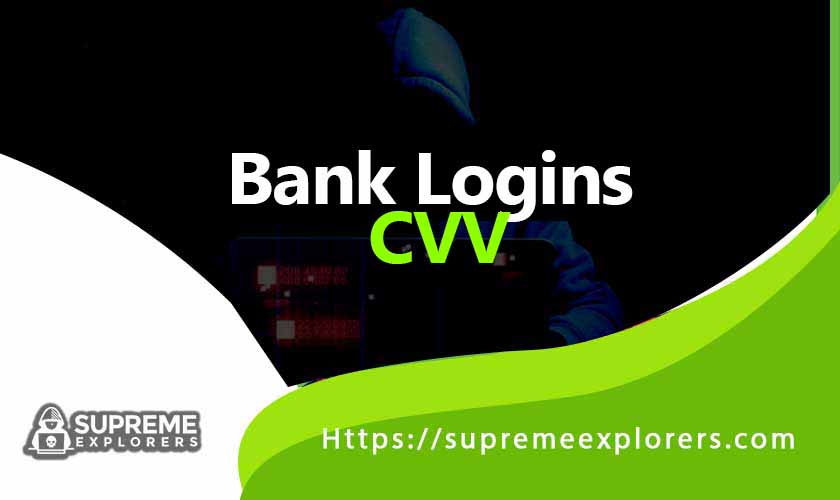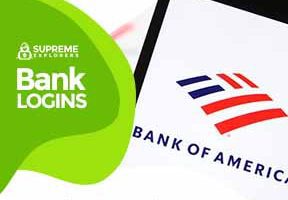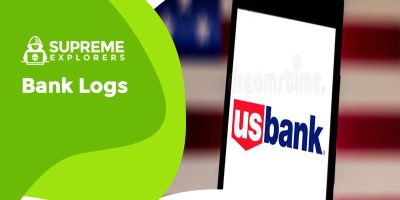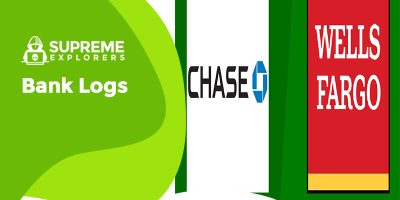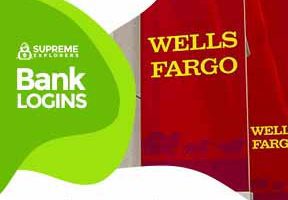Bank Logins and CVV: Everything You Need to Know
Are you looking for ways to conduct online financial transactions anonymously and securely? You might have come across the terms “bank logins” and “CVV” while exploring the dark corners of the internet. In this article, we will explore what these terms mean and how they can be used to conduct illegal activities. We will also discuss their legal uses and the measures you can take to protect yourself from their misuse.
-
Bank Logins
BANK OF AMERICA USA LOGS
$180.00 – $600.00 Select options This product has multiple variants. The options may be chosen on the product page -
Bank Logins
BOA Bank Logins USA
$200.00 – $1,300.00 Select options This product has multiple variants. The options may be chosen on the product page
1. Introduction
With the rise of online transactions, it has become more important than ever to protect sensitive financial information. Bank logins and CVV are two terms that are often used in the context of online financial transactions. Bank logins are credentials that allow you to access your bank account online, while CVV is a three-digit code on the back of your credit or debit card that is used to verify your identity in online transactions.
Bank logins and CVV codes are critical elements in online financial transactions. They provide access to bank accounts and can be used to make purchases online. However, their use can also be associated with illegal activities, such as identity theft and fraud. In this article, we will discuss what bank logins and CVV codes are, how they can be obtained, and how to protect yourself from potential scams.
2. What are Bank Logins?
Bank logins are a set of credentials that allow you to access your bank account online. These credentials typically include a username and password. Once you enter these credentials, you can view your account balance, transfer funds, pay bills, and perform other transactions.
-
Bank Logins
Wells Fargo Bank Logins USA
$750.00 – $2,300.00 Select options This product has multiple variants. The options may be chosen on the product page -
Bank Logins
Wells Fargo USA LOGS
$850.00 – $2,500.00 Select options This product has multiple variants. The options may be chosen on the product page
3. How are Bank Logins Obtained?
Bank logins can be obtained through various methods, both legal and illegal. Legal methods include creating an account with your bank and obtaining login credentials through the bank’s website or mobile app. Illegal methods include phishing, where scammers send you an email or text message that appears to be from your bank and asks you to enter your login credentials on a fake website.
4. What is CVV?
CVV, or Card Verification Value, is a three-digit code on the back of your credit or debit card that is used to verify your identity in online transactions. CVV is also known as the Card Security Code (CSC) or Card Verification Code (CVC). CVV is different from the PIN, which is a four-digit code that is used to authorize transactions at ATMs or physical stores.
5. How is CVV Obtained?
CVV is obtained when you create a credit or debit card account. The code is printed on the back of the card and is not stored in the bank’s database. However, CVV can be obtained through illegal methods such as skimming, where scammers use a small device to steal your card information when you swipe it at a store or an ATM.
-
Bank Logins
SunTrust USA LOGS
$550.00 – $1,550.00 Select options This product has multiple variants. The options may be chosen on the product page -
Bank Logins
TD Bank USA LOGS
$470.00 – $1,550.00 Select options This product has multiple variants. The options may be chosen on the product page
6. Legal and Illegal Uses of Bank Logins and CVV
Bank logins and CVV can be used for both legal and illegal activities. Legal uses include accessing your bank account to perform legitimate financial transactions, such as paying bills or transferring funds. Illegal uses include using stolen bank logins or CVV to conduct fraudulent transactions or to access someone else’s financial information without their consent.
7. Protecting Yourself from Misuse of Bank Logins and CVV
To protect yourself from the misuse of bank logins and CVV, you should take the following measures:
- Never share your bank login credentials or CVV with anyone.
- Use a strong and unique password for your bank account and change it regularly.
- Enable two-factor authentication for your bank account if it is available.
- Check your bank account regularly forany unauthorized transactions and report them to your bank immediately.
- Be cautious when receiving emails or text messages that ask you to enter your login credentials or CVV. Verify the authenticity of the sender and the website before entering any sensitive information.
- Use a secure and trusted payment gateway for online transactions.
8. The Future of Bank Logins and CVV
As technology evolves, the security measures for online financial transactions will also evolve. Biometric authentication, such as fingerprint or facial recognition, may replace traditional login credentials and make transactions more secure. In addition, tokenization technology, where a one-time token is generated for each transaction, may replace the use of CVV codes.
9. Conclusion
Bank logins and CVV are important tools for online financial transactions, but they can also be used for illegal activities. It is essential to protect your sensitive financial information and take measures to prevent the misuse of bank logins and CVV. By following the tips outlined in this article, you can conduct online transactions safely and securely.
10. FAQs
- Is it legal to buy bank logins or CVV? No, it is illegal to buy or sell bank logins or CVV. These credentials are stolen or obtained through illegal means.
- Can bank logins or CVV be traced? Yes, bank logins and CVV can be traced by law enforcement agencies. Using these credentials for illegal activities can result in severe penalties.
- What should I do if I suspect someone has stolen my bank login or CVV? You should contact your bank immediately and report any unauthorized transactions. Change your password and enable two-factor authentication if available.
- How can I protect my bank account from fraud? Use a strong and unique password, enable two-factor authentication, and check your account regularly for any unauthorized transactions. Use a secure and trusted payment gateway for online transactions.
- What is tokenization technology? Tokenization technology generates a one-time token for each transaction, replacing the use of CVV codes. This makes transactions more secure and reduces the risk of fraud.


11. Why You Should Choose A Reputable Seller For Bank Logins And CVV
If you are in need of bank logins or CVV for legitimate purposes, it is important to choose a reputable seller to avoid scams and fraud. A reputable seller will provide you with accurate and reliable information, ensuring that you can use it without any legal or security issues.
12. How To Choose A Reputable Seller
Here are some tips to help you choose a reputable seller for bank logins and CVV:
- Check the seller’s reputation and customer reviews online. Look for positive reviews and feedback from previous customers.
- Ensure that the seller provides accurate and up-to-date information. Ask for samples or test the information before making a purchase.
- Look for sellers who offer secure payment methods and guarantee the accuracy of the information provided.
- Avoid sellers who ask for payment in advance or offer suspiciously low prices.
13. The Benefits Of Using Bank Logins And CVV
While there are risks associated with bank logins and CVV, there are also many benefits to using them for legitimate purposes. Bank logins and CVV can make online transactions more convenient and secure, allowing you to make purchases from the comfort of your own home.
14. Conclusion
Bank logins and CVV are important tools for online financial transactions, but they can also be used for illegal activities. It is crucial to protect your sensitive financial information and take measures to prevent the misuse of bank logins and CVV. By following the tips outlined in this article, you can conduct online transactions safely and securely. And if you need to use bank logins or CVV for legitimate purposes, be sure to choose a reputable seller to avoid scams and fraud.
15. FAQs
- Can I use bank logins or CVV for legitimate purposes? Yes, bank logins and CVV can be used for legitimate purposes, such as accessing your own bank account or making online purchases.
- How do I know if a seller is reputable? Check the seller’s reputation and customer reviews online, ensure that they provide accurate and up-to-date information, and look for secure payment methods and guarantees.
- What are the risks of using bank logins and CVV? Bank logins and CVV can be used for illegal activities, and using them for such purposes can result in severe penalties.
- Can I protect myself from the misuse of bank logins and CVV? Yes, you can protect yourself by using strong and unique passwords, enabling two-factor authentication, and checking your account regularly for any unauthorized transactions.
- Are there any alternatives to using bank logins and CVV? Yes, there are alternative payment methods such as digital wallets and prepaid cards, which may be more secure and convenient for online transactions.

